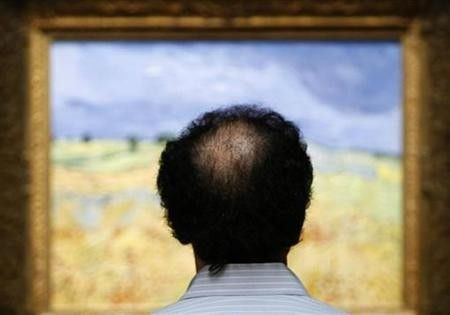Scientists Conduct Studies on Propolis to Treat Hair Loss

Partial hair loss or total baldness are scalp conditions that many people cannot avoid. To deal with it, some would resort to hair transplant or prescribed medication while others would try their luck with over-the-counter treatments. A new study from Hokkaido University in Japan suggests that hair growth can be stimulated using a natural resource from bees called propolis. The researchers have been studying the effects of propolis on certain cells linked to hair growth.
The substance was first tested on clean-shaven mice. According to the research, propolis contains active ingredients such as kaempferol and caffeic acid that stimulated the start of the hair growth cycle in the subjects' bald skin. Faster and normal fur growth was noticed in the animals that have been treated with propolis. Based on the results, the researchers theorize that the application of propolis accelerates hair growth by inducing the multiplication of hair keratinocytes. However, further clinical studies would have to be conducted to observe the actual effects of propolis application on human hair or scalp. Inflammation is one of the causes of chronic hair loss. Propolis has anti-inflammatory properties, and so it could prevent hair loss or induce better hair growth.
Propolis or bee glue is produced by the combination bee saliva and plant resin. Bees use it as an adhesive and sealant in their hives. The waxy substance is used both in traditional medicine and in manufactured products to treat various conditions from common infections to cancer. It is believed to fight bacteria, certain viruses, fungus, and inflammation. Commercially produced propolis are being sold in stores as dietary supplements or as topical medications.
Before taking this organic substance orally or applying it on the skin or scalp, it is best to consult a medical professional in advance. There have been reported cases of allergic reactions to propolis ingestion. Although this substance has been used since ancient times for several therapeutic and aesthetic purposes, there is limited medical studies on the uses of propolis and inadequate evidence to prove its efficacy. Continuous studies on its healing properties and side effects would enable modern medicine to define and verify its effectiveness.
To contact the writer, email: jm_panganiban@IBTimes.com.au




















